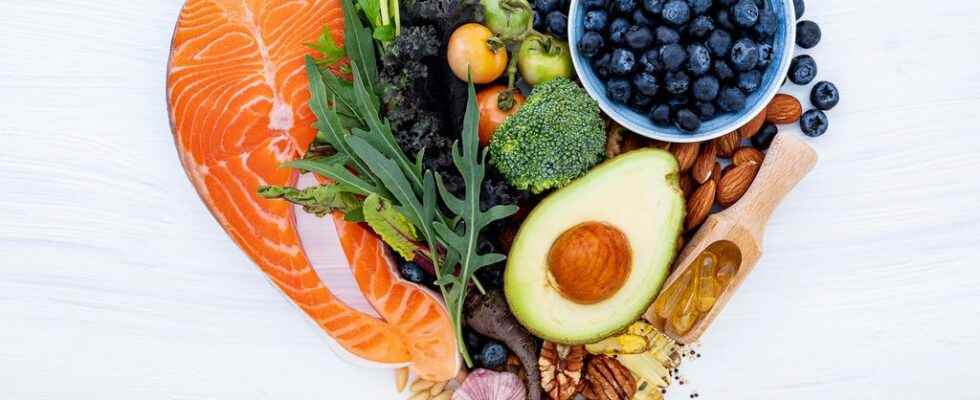[BONNES GRAISSES] Fat drags a bad brand image. Yet some fats are good for the heart, the brain … and the shape! Here’s why we absolutely need to eat it – in the right proportions – every day.
Without fats, no cells, no neurons, no hormones, no vitamins A, D, E, K, no bile salts necessary for digestion … In short: no life! “We absolutely must consume it to stay healthy. But not just any. All are made up of a ‘mixture’ of different fatty acids: saturated, monounsaturated, polyunsaturated, trans …”They are classified among the “good fats” or the “bad” according to the one which predominates “, specifies Marie-Caroline Savelieff, dietitian nutritionist.
In video: 4 good reasons not to shun good fats
Good fats or bad fats: how can you tell the difference?
>> The good fats are omega-3 and 9. Anti-inflammatory, heart protectors and anticancer, good for the brain and anti-depression, they are also easily burned by the body.
- Foods rich in omega-3s: salmon and other “well-bred” fatty fish, nuts, lamb’s lettuce, walnut oil, Bleu-Blanc-Cœur certified products, etc.
- Foods rich in omega-9: olives, olive oil, duck fat, hazelnuts.
>> The bad fats are omega-6 and saturated fatty acids. They do the opposite. We actually need all of these fats in a certain balance.
- Foods rich in omega-6: sunflower, corn, soybean oils.
- Saturated fats: meat, cheese, “fatty” sauces in general, whole milk and dairy products, especially cooked butter.
>> The fats to be avoided are all hydrogenated and trans fats. Industrial products: salty and sweet biscuits, spreads, “bad” margarines, “bad” pastries, ready meals, low-end sauces.
Good fats also help keep your figure
Good fats help you manage weight better, even if the fat remains the most caloric nutrient. “All fat provide 9 kcal per gram, but some acids fat promote weight gain and other loss, notes Véronique Liesse, dietician-nutritionist. When you lack omega 3, you can block slimming, so you have to cover the recommendations; no more, however, for that would be pointless. We recommend a contribution of omega 3 (EPA and DHA) of the order of 500 mg per day, and in acid fat alphalinolenic (omega 3 of plant origin), around 2 to 3 g per day. “
Conclusion? When we cover our needs in fat, it cannot be stored, it has a functional role. Conversely, if we do not bring this fat, the body can start to store or slow down the destocking!
Read also :
Loading widget
Subscribe to the Top Santé Newsletter to receive the latest news for free








